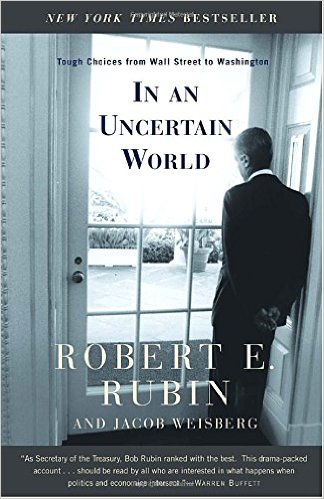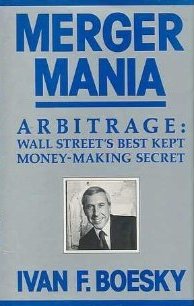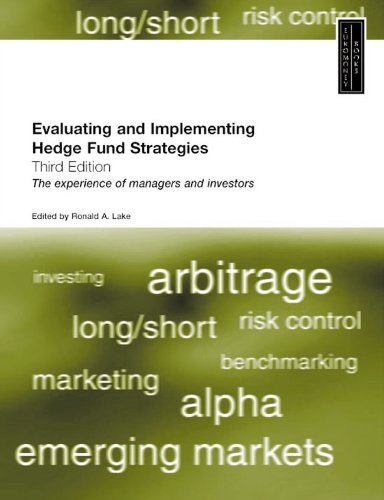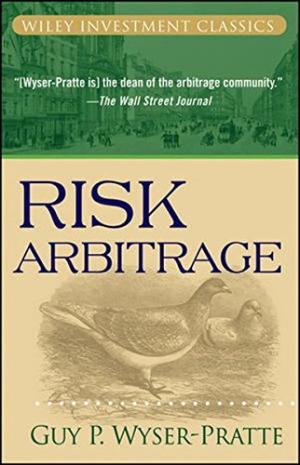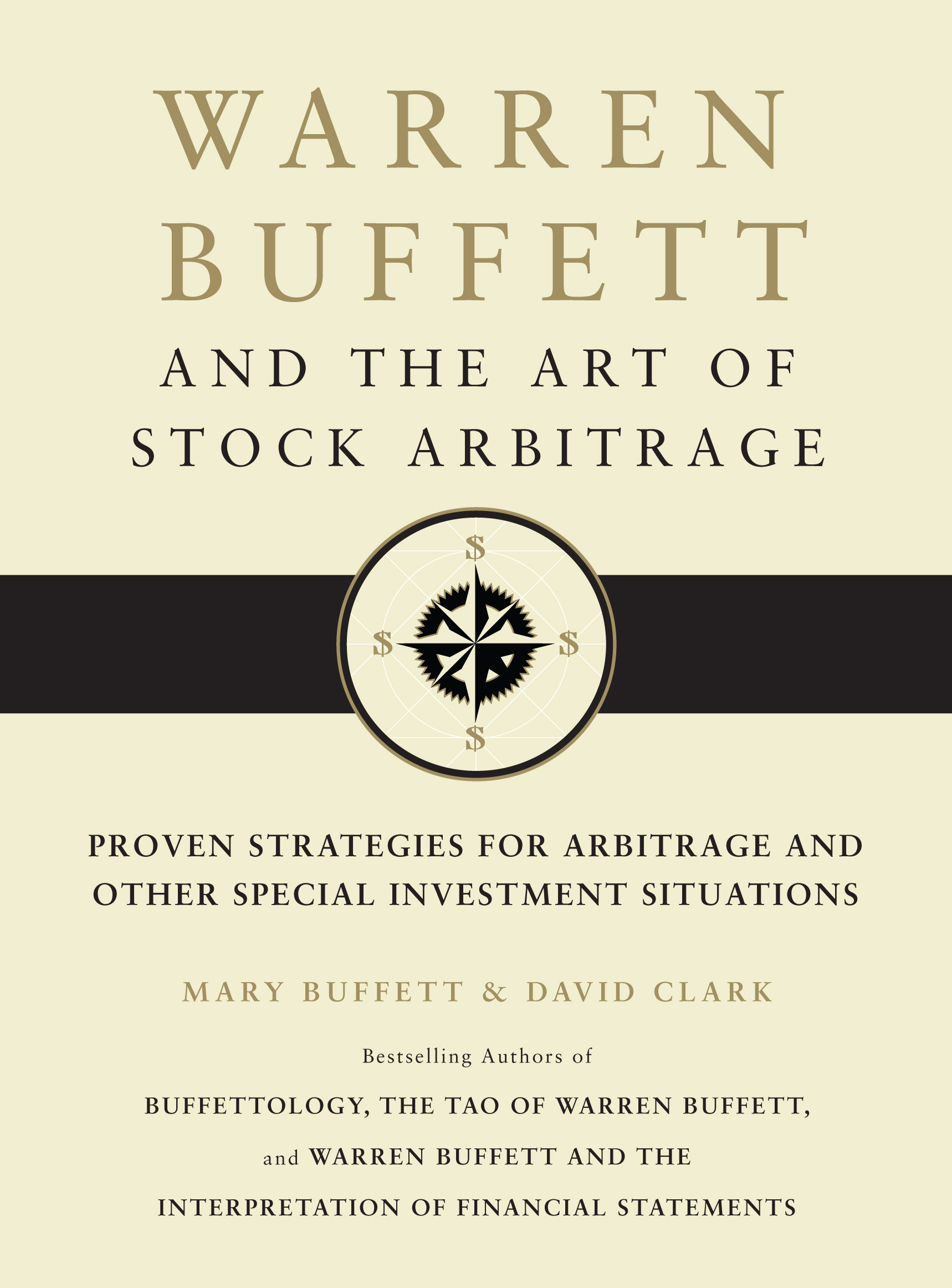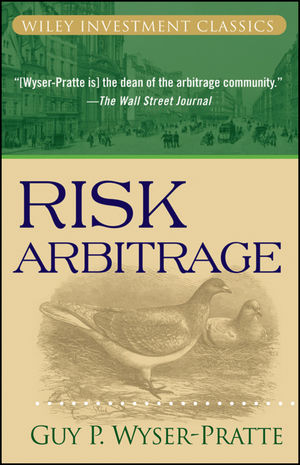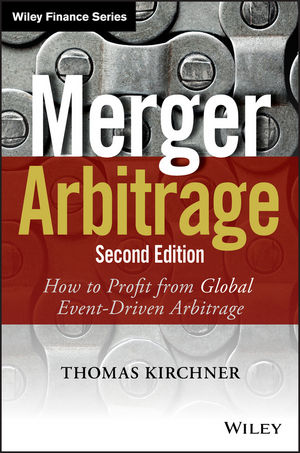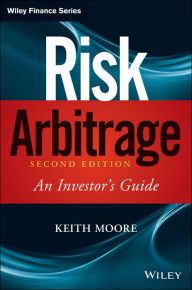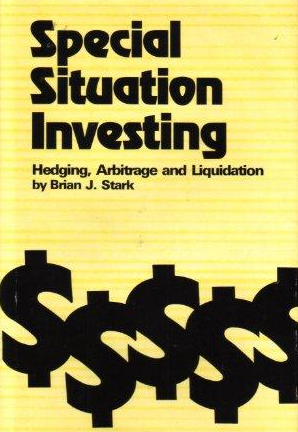If you’ve worked in investing for a while, or even if you’re a private investor, I’m sure you will have come across the term Arbitrage. It comes from the French, and in investing its definition is ‘the buying and selling of securities, assets or commodities in different markets to take advantage of differing prices for the same asset.’ Quite simple really.
When we talk about Risk Arbitrage however, we’re referring to something slightly different. Risk Arbitrage, which is also known as Merger Arbitrage, is ‘an investment strategy that speculates on the successful completion of mergers and acquisitions.’ In reality this is not as simple, and as the name suggests it is arbitrage with the added element of RISK. Quite often a lot of it.
“Make the Assumption There Can be No Assumptions”
These profound Eight Words were written in thick black pen on a post-it note which I stuck to my computer monitor sometime in late 2007. At that time my job was advising Global Hedge Funds on risk arbitrage, and the words served as a daily reminder to me right through the Financial Crisis until I left that job to join another bank in 2010. I can’t tell you how much money those words saved my clients along the way, but I can say they helped us avoid recommending plenty of deals that broke. And broke ugly.
In late 2007, the world’s largest commodity company, BHP Billiton, announced it was going to take out its largest rival. China’s massive stimulus program had ignited a frenzied rally in commodity prices and the race was on for commodity companies to lock down more supply. BHP lobbed an audacious scrip-based bid for it’s iron ore arch rival RIO Tinto. The ink had only just dried on RIO’s own acquisition of Alcan, a large aluminium producer. At the time, many saw RIO’s bulking up as a defensive tactic to ward off potential bidders. There had been speculation that RIO was in the cross-hairs of numerous acquirers including the Chinese.
Once the dust had settled and BHP’s bid was live, the common assumptions that surfaced were: BHP would be willing to divest any assets required for competition authority approval; BHP’s initial bid was an opening gambit and given the significant synergies available, was sure to be raised; BHP was taking a long term view and wouldn’t be swayed by weaker commodity prices; a counter-bid from the Chinese or another miner was possible and finally; even should the deal break, BHP and RIO would trade back to the stock price ratio consistent with that prior to the bid.
BHP RIO Share Price Ratio [Source: Bloomberg]
Those assumptions ended up costing the hedge fund industry hundreds of millions of dollars. In actual fact, commodity prices weakened, BHP couldn’t extract the required synergies, debt markets closed and BHP abandoned the takeover. On the day the deal broke, BHP’s shares rose 15% while RIO’s shares collapsed nearly 40%. The prior ratio did not hold. Expensive assumptions, indeed.
I think you would all agree that learning investment lessons from others is far preferable to doing so with your own money.
Recently I read a wonderful book on Merger Arbitrage entitled, ‘Merger Masters - Tales of Arbitrage’ by Kate Welling and Mario Gabelli. Kate and Mario have done an incredible job of bringing together many excellent tales of merger arbitrage via interviews with the world’s Risk Arbitrage Masters, and have identified the learning insights we can take from each.
The book is a must read if you’re considering adding merger-arb to your investment toolkit and it’s a useful adjunct for all investors. Like the Investment Tutorials that form the Investment Masters Class, you’ll notice some themes common to successful risk-arb practitioners. I have included a number of the pertinent points and quotes raised in the text below.
Free Calls
“Focus on finding a free call. If you were risking a really small sum of money but there was a chance for the bid to be increased, we liked to load up.” Martin Gruss
“What you’re trying to do in a deal is put yourself in a position to win the call option.” Drew Figdor
Market Downturns
“All boats- yachts and rowboats-go down together in a severe market decline. And if you’re highly leveraged, you’ll be carried out.” Martin Gruss
“Arb stocks get pounded in extreme market situations. And that’s true whether it’s your basic cyclical crash, as ‘87 proved to be, or crashes that are actual harbingers of recessions and economic crisis, like more recent examples.” Michael Price
“Sometimes everything is correlated - but that’s not anything you’ll get away from.” Clint Carlson
“I hate a merger agreement with a market escape clause - I hate it.” Karen Fineman
“Almost every long position is correlated, if the downturn is bad enough.” John Bader
Meeting Mario Gabelli at BRK 2019
Leverage
“You can’t always get it right. If you have leverage when you slip, it takes you down.” John Paulson
“If you’re running a very concentrated portfolio, you need to bring the leverage down… The wrong strategy is, ‘My arb spreads are tight so now I’m going to lever up. No, you lever up when arb spreads are wide and the opportunity is really good.” Clint Carlson
Why The Deal?
“My first and most important thought process when a new deal emerges is why is there a deal? Why does this deal make sense?” Michael Price
“The first question is not the obvious, what’s the spread? Or what’s the rate of return? It is why? What’s the motivation, Why are they doing this? Second question, What’s the valuation? Does it make any sense? Is it cheap? Is it expensive? I’d much rather invest in a deal - even if nobody comes in and tops the bid - if it’s on the low side of fair value because (a) there are that many more chances that something good will happen and (b) there’s that much less downside.” John Bader
“There’s one key element that’s going to make or break your investment and you’ve got to focus on getting that one big thing right. That’s why, to this day, my first question is, ‘Does this deal make sense? Should both parties be wanting to do this?’” Clint Carlson
“[We do] lots and lots of fundamental research work on the acquirer and the target, as well as on the industry involved trying to understand why they’re doing the deal, what they see, who the people are, and what the incentives are.” Jamie Zimmerman
“I always try to figure out: What is the industrial logic for this deal? Why are they doing it? Is it accretive, dilutive? I do a lot of valuation work and try to understand the business - because if I didn’t understand them, I wouldn’t know what risks could stand in the way of completion of the deals.” Clint Carlson
“When assessing deals, the most important factor for us - is whether there is strategic merit to the combination. Is there a strategic reason why these people are getting together? Or is it just a financing deal or a tax deal or some other motivation, which is not as strong or not as good?” George Kellner
“A deal should be a big opportunity for the buyer or a big opportunity for the seller.” Michael Price
“I’m always leery of tax-driven deals as opposed to deals driven by real business reasons.. Another red flag is a lot of debt financing. Another is sketchy earnings. You look through the products, you look through the people.” Michael Price
“Avoid politicized deals, which seem to have a tendency not to work out well.” John Bader
“Avoid the spreads where the buyer has a get-out-jail-for-free card.” James Dinan
Deals Break
“There’s risk in even ‘sure things.’” Michael Shannon
“There’s no such thing as a ‘sure thing’ and deals can break for a whole host of reasons - which can’t be foreseen. What’s more, my experiences also taught me that the insiders very often don’t know how it will turn out. Deals get done by human beings, and human beings can be fickle. Attitudes can turn on a dime. So much so that maybe a degree in psychology would be good preparation for merger arbitrage.” Martin Gruss
“There’s no such thing as a safe deal. That’s why it’s called risk arbitrage.” Clint Carlson
“No matter how sure you are that something will happen, there’s always a bit of uncertainty.” James Dinan
“I learned about risk management in the tails by experiencing very real pain.. If there is one thing I have learned - and really learned it in this business - it is that the losers are what kill you in the merger arbitrage space.” James Dinan
“Inevitably there will be broken deals. There will be fraud at a company, there may be a natural disaster - anything can happen… We deal with that by limiting our position sizes and properly diversifying.” Roy Behren
“You always have to be thinking, ‘What could go wrong'?’ Finally you need a high degree of skepticism - bordering on cynicism. You can’t take anything at face value.” Clint Carlson
Broken Deals
“If the deal breaks, you’re not losing a rate of return, you’re going to lose money.” Drew Figdor
“We hold to a general philosophy that making valuation bets on companies is not our business. So, if a deal breaks, we work our way out of related positions, ideally, methodically and carefully.” Michael Shannon
“Hoping is a terrible strategy. I try to be very disciplined about it - as in, ‘I’m here for an event. It didn’t happen. We’re out’. That is a pretty firm rule for me, and it’s painful, but how many times do you see that your first sale was your best sale? My biggest losers always started out as a smaller losses.” Karen Finerman
“There’s often real value to be found in playing the busted arb deals.” James Dinan
“Knowing where intrinsic value is means you can take advantage of the technical selling pressure from arbs unwinding - it can create opportunity. But you have to have done the work first.” Clint Carlson
“You have to have a sense of what you think the risk/reward is for holding or covering.” Jamie Zimmerman
Humility
“Hubris and bravado have no place in arbitrage.” George Kellner
“There’s a set of mind that is an absolute requirement. If’ your’re not a person whose starting point is “What am I missing?” rather than “How frickin’ great am I?” you are missing something essential to survival. “What am I missing?” is like oxygen. If you’re asking, “How great am I?” you’re the Night of the Living Dead.” Paul Singer
“If you think you’re smarter and right on deals, you’re going to go down the tubes too often. My approach is always trying to control risk by not assuming I’m right versus the market.” Drew Figdor
“Being taken to the edge and being forced to look down, it taught me something very important.. I learned that you’re not as smart as you think you are - and bad things can happen totally unexpectedly.” George Kellner
Capital Preservation
“The real key is avoiding losers.” James Dinan
“Capital preservation is the key to the risk-arb business.” Drew Figdor
“I don’t want to lose money, ever, with no excuses. My goal with investors is a combination of under promising and over delivering whenever I can. And I try not to be benchmarked. We just try to make moderate returns - as high as possible - given that our goal is not to lose money.” Paul Singer
“We always spend a lot more time trying to figure out what the downside could be than we do on the upside - and continuously update the downside calculation over time to track how the values are changing.” Clint Carlson
“The way you get really rich in this country is you live a really long time and don’t lose money - keep it compounding.” Joe Gruss
“Any young MBA can do the math. But you need judgement, experience to know when to get involved. Even then, no one is right all the time, so part of risk arb - and all investing - is managing losses, and that goes first to position sizing.” Michael Price
“The downside of the business is that when you’re wrong, it’s very painful. So you can’t be too wrong, too frequently - which makes avoiding busted deals the name of the game. Figuring out what that risk is and the probability of that risk - which is not a science, it’s a little bit of an art - is the key.” George Kellner
Skills
“I actually think the technical skills are secondary. The important stuff is creativity and a little intelligence.” Paul Singer
“The whole business, at least on the senior level, is very much an art form and it pays to be able to draw upon history.” Peter Schoenfeld
Hard Work & Channel Checks
“You’ve got to be 100% focused… The way you get or find things is by 100% focus and constant digging, finding information, and understanding the relevance of that information - because when you look back, there are always clues. You want to find those clues before the event happens.” John Paulson
“We actually go visit companies. They’re like, ‘Why are you here? Why aren’t you just asking questions on the conference call? But risk arbitrage is like the insurance business. We’re taking on the risk the deal won’t close. If you’re writing a life insurance policy on someone, wouldn’t you want to take a look, make sure they’re healthy?” Michael Shannon
“We travel to directly meet with companies, competitors, regulators.” Drew Figdor
“Start with the documents, read the merger agreement, go through the 10-K. There are no short cuts. But don’t get lulled into thinking, as some people do, that nothing else matters ‘if the merger agreement is airtight’… You can’t rely on an ‘airtight’ merger agreement.” Clint Carlson
Cyclicality
“It’s not a business for all seasons.” Paul Gould
Diversify
“We were quite risk-averse and very conscious of avoiding concentrating our positions in industries or sectors or with a specific investment banker.” Paul Gould
“If you only sell ten life insurance policies and one guy dies, it wipes out all the premium. You can’t do it, you have to be more diversified.” Michael Shannon
“Unusual things happen. That’s why you have to diversify” Jeffrey Tarr
Market Neutral
“The important thing for us is to squeeze out any directional exposure. Our goal in managing the merger-arbitrage portfolio is to create a market-neutral vehicle to provide absolute return for our investors.” Roy Behren
“The great thing about these strategies is that you can be market-neutral or uncorrelated to the market.” Jamie Zimmerman
Common Sense
“The core of a good risk-arb strategy has always been and remains, even today, despite all the computers, just common sense about where the risks are and how they correlate and don’t correlate - things that machines can’t necessarily tell you. The analysis of deal dynamics and of people’s motivations.” Paul Gould
Resilience
“As an investor, you need tenacity, resilience. Everybody makes mistakes - sometimes big - and you have to have resilience to come back, survive, make decisions amid ambiguity.” Paul Singer
“You have to remember these are essentially bets; you’re not always going to get them right. What’s more, when you’re wrong about a position, you can’t let it get in your brain so it defeats you. You have to pick yourself up and do the next deal.” Jamie Zimmerman
Low Risk and Last Mile Trades
“Nor will we play what we call ‘Last Mile Trades,’ which involve taking positions in deals that are almost certain to happen - ones with four or five days to closing that you can maybe make a nickel in. To us, the asymmetric optics of buying a position to make a nickel when - God forbid - something could go wrong and you’d lose $8.” Roy Behren
“We’ve always been highly selective. I’m not a fan of investing in vanilla, low risk-mergers. In that game, you get nine right and then you give it all back with the tenth. The merger business we tend to do is stuff that’s complicated; has hair on it.” Paul Singer
“We get involved in deals that have different characteristics, where we can trade effort for risk or complexity for risk - and that’s why our pattern of returns is so different than others.” Paul Singer
“Embrace complexity. Complexity is your friend. For the simple reason it is where you can add value.” James Dinan
“We’re not a buy and hold merger-arb spread shop. Instead we focus on being a complex, trade the events, creative shop.” Drew Figdor
Position Size
“Position sizing in arbitrage really matters because that’s what determines your success. You’ve got to be right, but if you have tiny positions in the deals than happen and a big position in one that doesn’t, you’re done. You’re toast.” Michael Price
“Before you put yourself into a position to get lucky if a bidding war or whatnot breaks out, you first have to decide, ‘How do I size this?’.. Its always tempting to look at the potential rewards but it’s much more disciplined to look at what could go wrong; what do I lose if it goes wrong; The last thing you want to do is kill yourself. You have to live to fight another day. If you size yourself appropriately and something goes wrong, you can go and make the money back somewhere else.” Jamie Zimmerman
“We basically limit our positions to 2 percent of the portfolio. So our basic metric in the worst case we can anticipate, we’re not going to lose more than 2 percent of our capital. Over the many years that worked pretty well for us.” George Kellner
'“The game plan is not to be the Babe Ruth of the business. In other words, I want to have a 0.300 batting average wherever possible, but I don’t need to hit sixty-one home runs, or whatever Roger Maris hit, to break the Babe’s record. Consistently hitting singles and doubles is just fine.” George Kellner
People
“You have to know the cast of characters.” Michael Price
“Its crucial to assess who is pulling the strings and to understand what assumptions they are operating under and to assess whether they are realistic or not.” Peter Schoenfeld
“All the probabilities built into your best models - they don’t apply when it’s just one person, one decision.” James Dinan
“I also care who the lawyers and bankers are. I care if it’s the A-team, because the A-team get deals to the finish line.” Karen Finerman
“We should always want to think about: Does the CEO have his board behind him?” John Bader
“I've long considered management-led leveraged buyouts to potentially be the most egregious form of insider trading. If management participates in a buy-out group, you know they have hidden jewels.” Mario Gabelli
“Watch what the smart guys do. Today, that might be Jeff Immelt or Seth Klarman, Warren Buffett or Charlie Munger.” Michael Price
Summary
You can see that many of the principles of value investing are present in Risk Arbitrage as well. No one has a clean batting record; all of us will, and do, fail from time to time. Acknowledge your mistakes and pick yourself up and get on with it. Spread yourself rather than place all your eggs in one basket. Focus on the downside first.
Mario’s comment that if ‘management are involved in a buy out group, you know they have hidden jewels’ is a valuable insight. Look to the people involved for the real clues as to whether the merger has legs. All the research in the world won’t necessarily give you insight into people’s intentions, and the ‘why’ of the matter is crucial to success in this field. Why are they merging, indeed.
As the name suggests, Risk Arbitrage is fraught with peril. Never make the assumption there are no risks. And while things can go wrong, risk-arb can provide attractive returns if you use common sense, work hard and manage risk appropriately.
“There’s no way anyone could get bored with this business.” Paul Singer
Knowledge is the key, as it is with all investing. The information you glean from reading and meeting and talking and analysing makes all the difference in the world. I’ll let Mario have the last say:
“You don’t have to have good hand-to-eye co-ordination to be a good investor if you have the benefit of accumulated and compounded knowledge.” Mario Gabelli
Further Reading:
Merger Masters: Tales of Arbitrage - Kate Welling & Mario Gabelli. (Columbia Business School Publishing)
Investment Masters Class - The Arbitrage Series - Part 1
Investment Masters Class - The Arbitrage Series - Part 2
Follow us on Twitter: @mastersinvest
TERMS OF USE: DISCLAIMER


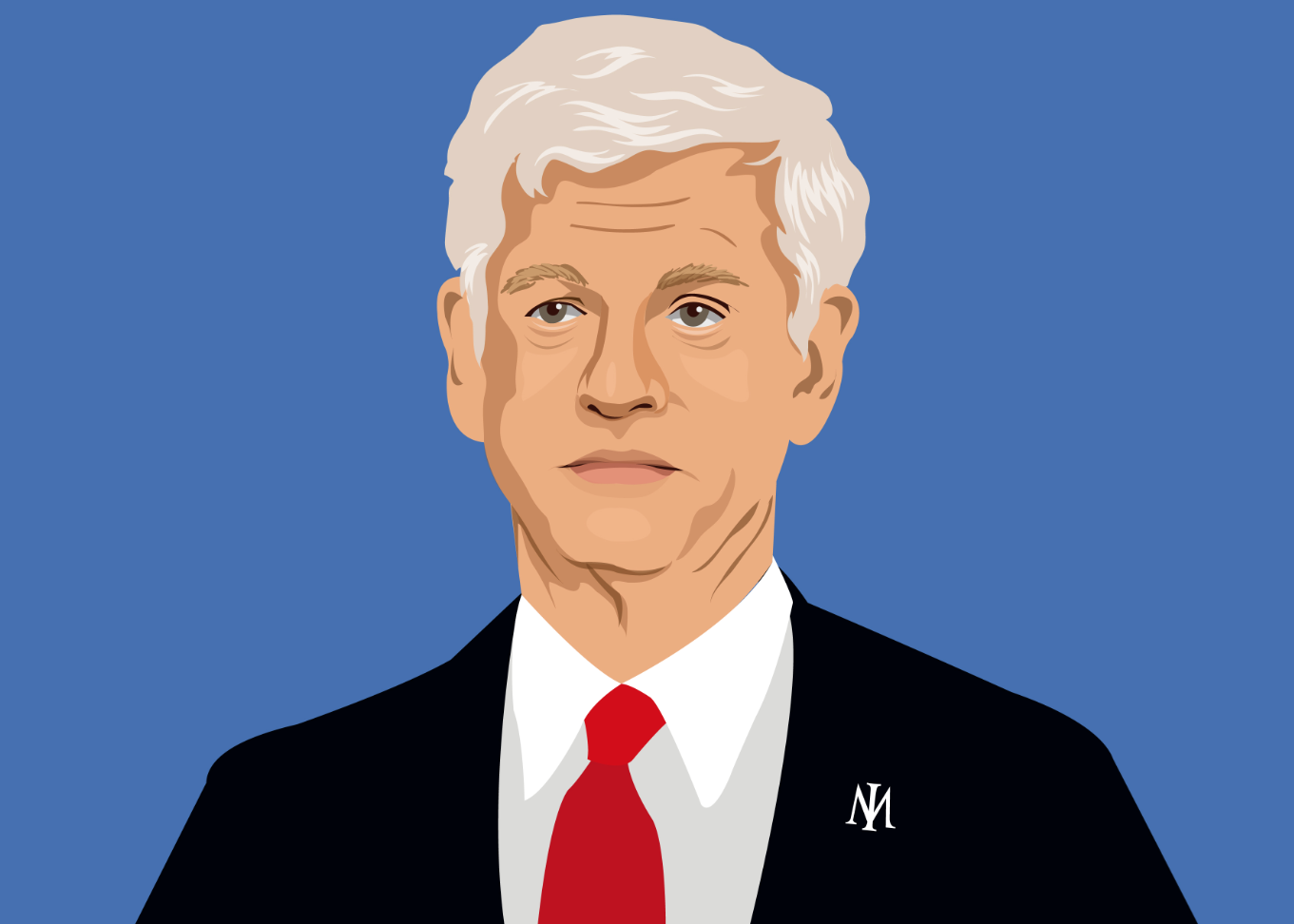
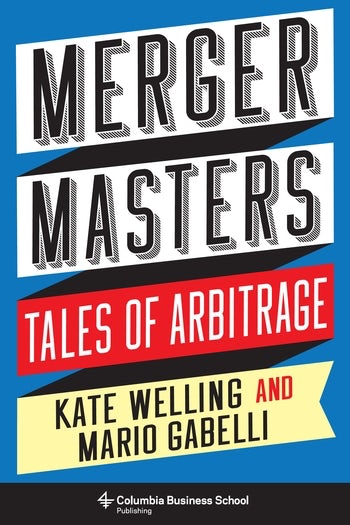
![BHP RIO Share Price Ratio [Source: Bloomberg]](https://images.squarespace-cdn.com/content/v1/568cf1da4bf1182258ed49cc/1559102957215-5I7SM5J8AIJQ19QT5BJ6/bhp_rio.JPG)



